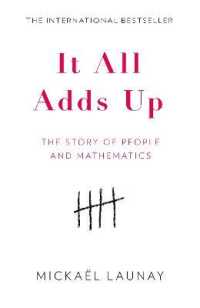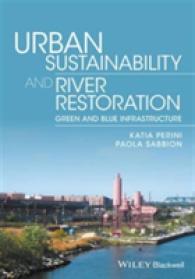Full Description
Unisa 1873-2018: The making of a distance learning university presents a critical appraisal of Unisa's transformation as it navigates the unfolding saga of South Africa's political development. The history of Unisa is fraught with a complex, oft-times ambiguous and contradictory, relationship with the state.
This official history of the University of South Africa provides a platform on which future narratives around Unisa can be constructed. As a distinctly colonial institution, Unisa was a site of friction between the colonial powers and nascent captive forces of Afrikaner nationalism and white supremacist ideology. The character of present day Unisa allows for the expression of alternative and dissenting opinions despite its proximity to a constitutionally crafted state in its pursuit of the `African university in service of humanity'. This is highlighted in the motifs of transformation, Africanisation and democratisation explored in the book.
Unisa 1873-2018 captures the university's transitions from an examining body to one that has fully embraced open distance and e-learning, more attuned to student needs. It delineates Unisa's shift to a more representative and African orientated institution serving the needs of the continent.
Contents
Abbreviations
Preface
Foreword By Professor M. Makhanya
Introduction
CHAPTER 1
The University of the Cape of Good Hope and Unisa, 1873-1946
CHAPTER 2 A.J.H. van der Walt: Higher education by correspondence, 1946-1956
CHAPTER 3 Samuel Pauw: Consolidation and expansion, 1956-1972
CHAPTER 4 Theo van Wijk: `A beacon of reasonableness'? 1972-1988
CHAPTER 5 Cas van Vuuren: Transition deferred, 1989-1993
CHAPTER 6 Marinus Wiechers: Transition and discord, 1994-1997
CHAPTER 7 Antony Melck: Steadying the Unisa ship, 1998-2001
CHAPTER 8 Barney Pityana: The African university in the service of humanity, 2002-2010
CHAPTER 9 Mandla Makhanya: Inculcating ethical values, 2011-2018
Afterword
Bibliography
Contributors








